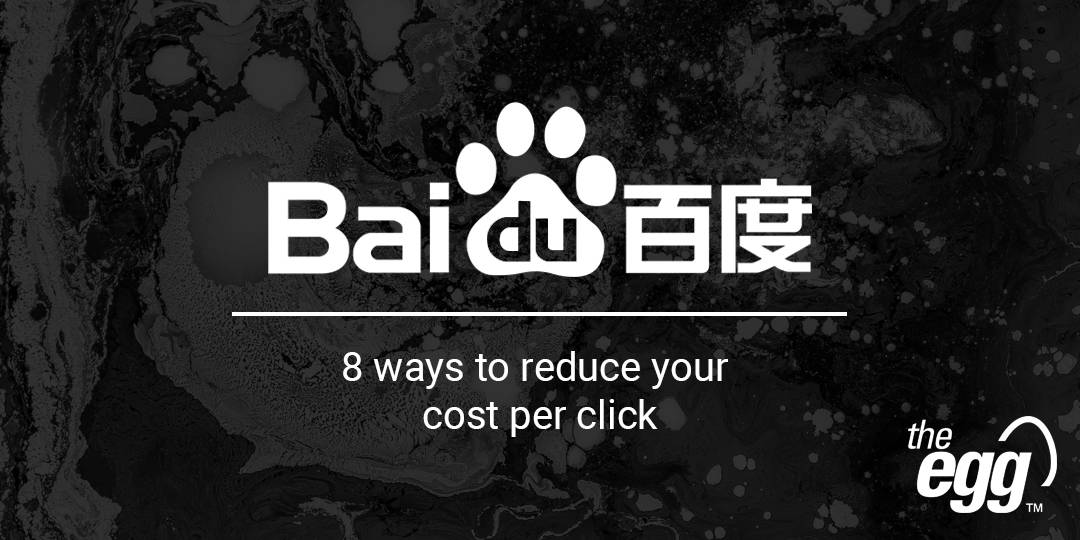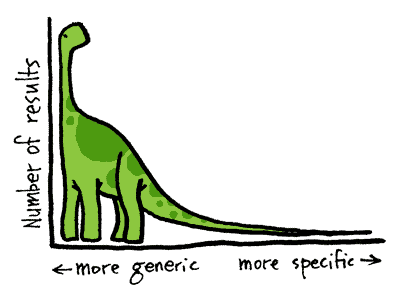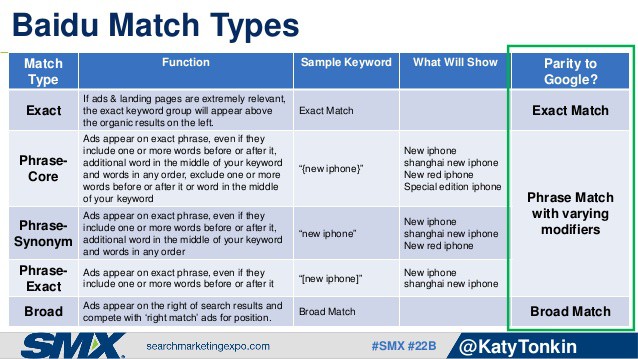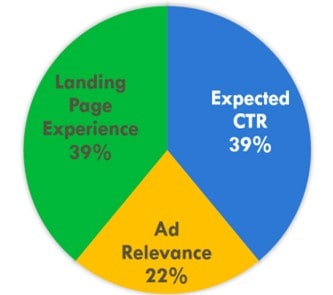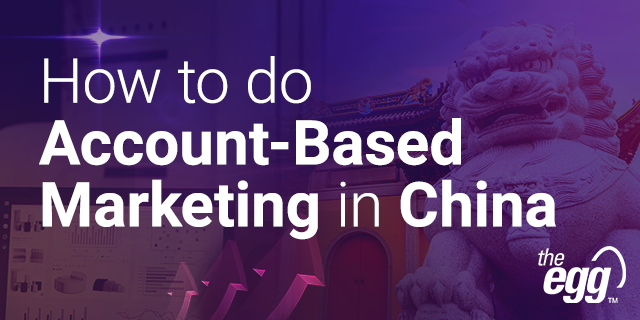Recently, a client asked us an interesting question, one that is indicative of a trend in Baidu PPC: Why have I received 20% fewer clicks in Q1 2019 than in Q1 2018 with the same level of spending?
The answer is that the cost-per-click (CPC) is 20% higher in 2019 than in 2018. Baidu’s PPC rates have gone up. But this isn’t necessarily a bad thing—because we’ve brought in higher-quality traffic over the year, the number of leads is almost the same. So even though the click rate is lower, and the CPC is higher, the traffic quality is better, which means greater conversion potential.
And generally speaking, every industry is competitive. It is this competition that raises the CPC, which ultimately is a sign of a healthy commerce ecosystem; it keeps businesses alert and striving to surpass competitors.
There are ways, however, to mitigate rising PPC costs. Here, we’ll go through 8 tips to reduce your cost/click on Baidu PPC.
1. Baidu PPC: Lower your bids
Lowering how much you bid on each keyword is the most basic and effective way to lower your cost/click. Of course, there is a compromise: While you can still bid on more expensive keywords, with that lower bid, your position will also be lower.
Think of it as paying for a flat in a premium building in a prime location. The flats on the lower floors will be less expensive than those on the top floors. But overall, the flats in the entire building will be more expensive than flats in an older, suburban building.
Lower bids on more expensive keywords still gets you in the premium building (SERP), but your flat (ad) will be on the lower floor (further down the SERP).
2. Baidu PPC: Use long-tail keywords
Long-tail keywords are highly specific with a low search volume but clearly identifiable search intent. The more generic a keyword is, the more people bid on it, and, therefore, the higher the cost. The more specific a keyword is, the fewer people bid on it, and, therefore, the lower the cost.
Because long-tail keywords are more specific and have a lower search volume, they are not prone to irrelevant search queries and hence do not waste your ad spend.
Long-tail keywords also tend to have a higher ad quality score—a higher ad quality score is the most significant factor for a lower CPC. The more relevant your ad keywords are to the queried terms, the higher your ad quality score and the lower your CPC.
3. Baidu PPC: Use geo-targeting
On Baidu PPC, different cities elicit different CPC ranges. The differences are especially pronounced between tier 1 and tier 2, 3, 4, and 5 cities. Usually lower-tiered cities elicit a lower CPC. So, splitting your budget more strategically and economically across different tiers is an effective way to lower your overall CPC across China on Baidu PPC.
Geo-targeting not only is an effective way to lower your CPC and see your ad performance across different cities in China, it also provides insights on how to allocate ad budget with other marketing channels.
4. Baidu PPC: Use more exact keyword match types
Baidu PPC has 5 different keyword match types (listed below in order of match relevance):
- Exact
- Phrase-Exact
- Phrase-Synonym
- Phrase-Core
- Broad
Broad match is not a good strategy for limited budgets, because it can trigger your ad for more generic and potentially irrelevant queries. Instead use exact and phrase match. We tend to use phrase match for brand and high-conversion keywords and exact match for generic and lower performance keywords.
5. Baidu PPC: Implement negative keywords
Negative keywords also help in lowering your CPC. They prevent your ads from being triggered by irrelevant search queries that can lower your click-through rate (CTR).
Each month, look at your search report and determine the irrelevant search queries that triggered your ad. Then use these queries to form a list of negative keywords that you will exclude from triggering your ad.
The exclusion of negative keywords is an optimization function that you should do on a regular, ongoing basis, as there will always be new negative keywords that appear in your search query report.
6. Baidu PPC: Leverage mobile traffic
For some industries, mobile campaigns have a lower CPC, so doing a mobile campaign can help temper your overall PPC budget.
But before you go mobile, you must determine your goals and ensure your pages are mobile-friendly, otherwise, no matter how low your CPC, everything will be in vain, as a good UX is imperative for mobile conversions and sales.
7. Baidu PPC: Improve your ad quality score
Your ad quality score has a direct correlation with your PPC success. By optimizing for quality and relevance to search intent, you can greatly increase your ad quality score, improve your campaign performance, and reduce your CPC.
To improve your ad quality score on Baidu PPC, you can:
- Update your landing page content to better match search intent and use different landing pages to showcase different product lines so that your ads will link more directly to landing pages that match search intent.
- Eliminate low performing ad copy and replace it with optimized ad copy based on your selected PPC keywords.
- Craft compelling ad copy that captures readers’ attention, which can increase the CTR. And the higher your CTR, the higher your quality score.
8. Baidu PPC: Protect your brand
By applying brand protection on Baidu PPC, you can stop competitors from bidding on and using your brand terms in their ad copy. This will bring down your competitor’s ad relevance and quality score—and potentially the CPC of your brand terms.
***
While lowering your CPC is of course important, it shouldn’t be your final goal. The CPC is a valuation of your competitive advantage and a comparison of industry benchmarks. Given that, the final goal should be the benefit you receive from your Baidu PPC campaigns: more leads, more conversions, and ultimately more sales.


